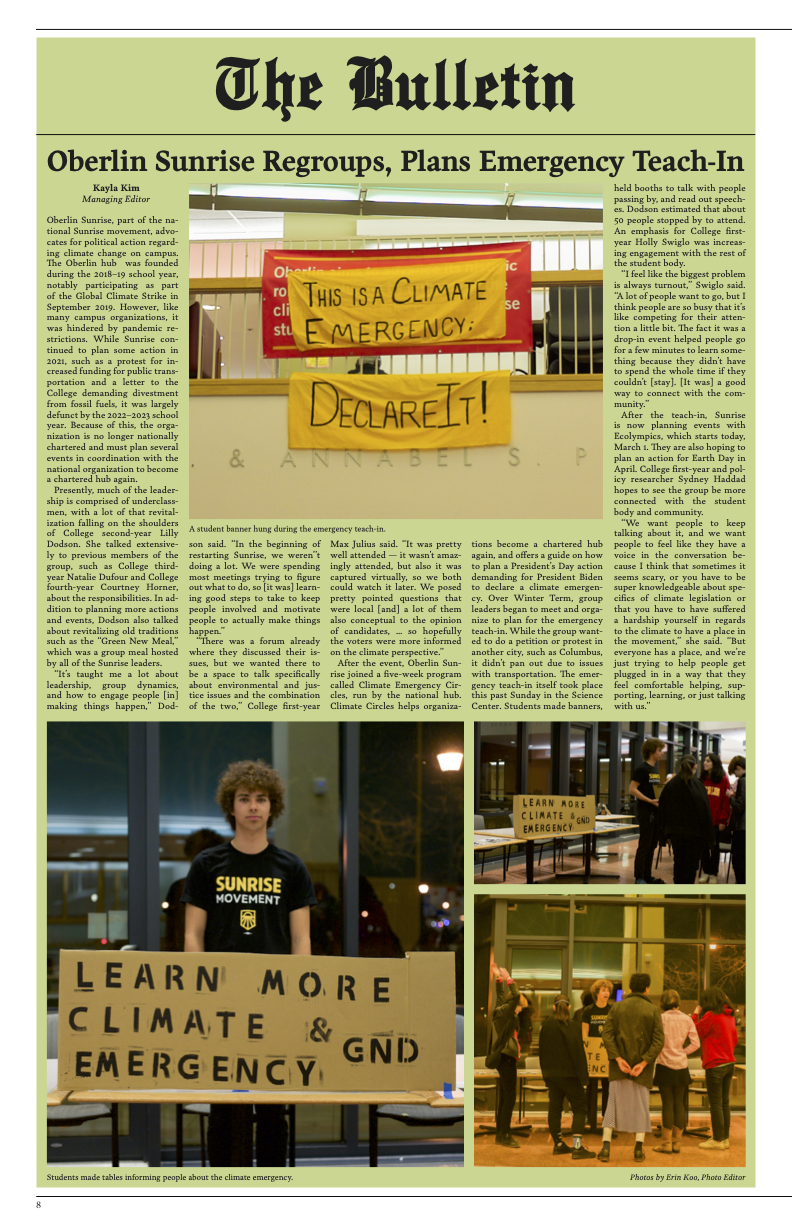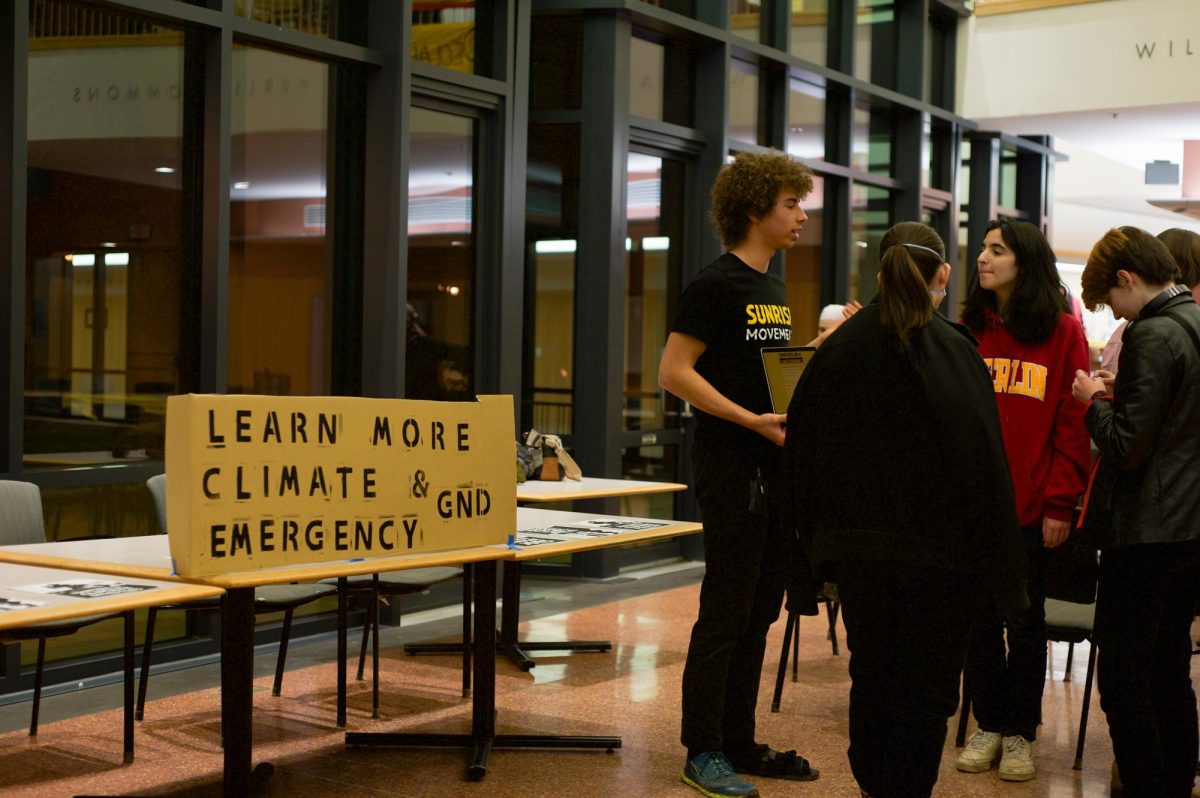Oberlin Sunrise, part of the national Sunrise movement, advocates for political action regarding climate change on campus. The Oberlin hub was founded during the 2018–19 school year, notably participating as part of the Global Climate Strike in September 2019. However, like many campus organizations, it was hindered by pandemic restrictions. While Sunrise continued to plan some action in 2021, such as a protest for increased funding for public transportation and a letter to the College demanding divestment from fossil fuels, it was largely defunct by the 2022–2023 school year. Because of this, the organization is no longer nationally chartered and must plan several events in coordination with the national organization to become a chartered hub again.
Presently, much of the leadership is comprised of underclassmen, with a lot of that revitalization falling on the shoulders of College second-year Lilly Dodson. She talked extensively to previous members of the group, such as College third-year Natalie Dufour and College fourth-year Courtney Horner, about the responsibilities. In addition to planning more actions and events, Dodson also talked about revitalizing old traditions such as the “Green New Meal,” which was a group meal hosted by all of the Sunrise leaders.
“It’s taught me a lot about leadership, group dynamics, and how to engage people [in] making things happen,” Dodson said. “In the beginning of restarting Sunrise, we weren’t doing a lot. We were spending most meetings trying to figure out what to do, so [it was] learning good steps to take to keep people involved and motivate people to actually make things happen.”
“There was a forum already where they discussed their issues, but we wanted there to be a space to talk specifically about environmental and justice issues and the combination of the two,” College first-year Max Julius said. “It was pretty well attended — it wasn’t amazingly attended, but also it was captured virtually, so we both could watch it later. We posed pretty pointed questions that were local [and] a lot of them also conceptual to the opinion of candidates, … so hopefully the voters were more informed on the climate perspective.”
After the event, Oberlin Sunrise joined a five-week program called Climate Emergency Circles, run by the national hub. Climate Circles helps organizations become a chartered hub again, and offers a guide on how to plan a President’s Day action demanding for President Biden to declare a climate emergency. Over Winter Term, group leaders began to meet and organize to plan for the emergency teach-in. While the group wanted to do a petition or protest in another city, such as Columbus, it didn’t pan out due to issues with transportation. The emergency teach-in itself took place this past Sunday in the Science Center. Students made banners, held booths to talk with people passing by, and read out speeches. Dodson estimated that about 50 people stopped by to attend. An emphasis for College first-year Holly Swiglo was increasing engagement with the rest of the student body.
“I feel like the biggest problem is always turnout,” Swiglo said. “A lot of people want to go, but I think people are so busy that it’s like competing for their attention a little bit. The fact it was a drop-in event helped people go for a few minutes to learn something because they didn’t have to spend the whole time if they couldn’t [stay]. [It was] a good way to connect with the community.”
After the teach-in, Sunrise is now planning events with Ecolympics, which starts today, March 1. They are also hoping to plan an action for Earth Day in April. College first-year and policy researcher Sydney Haddad hopes to see the group be more connected with the student body and community.
“We want people to keep talking about it, and we want people to feel like they have a voice in the conversation because I think that sometimes it seems scary, or you have to be super knowledgeable about specifics of climate legislation or that you have to have suffered a hardship yourself in regards to the climate to have a place in the movement,” she said. “But everyone has a place, and we’re just trying to help people get plugged in in a way that they feel comfortable helping, supporting, learning, or just talking with us.”



